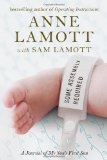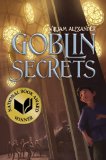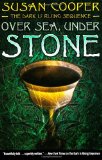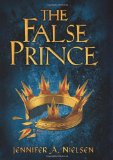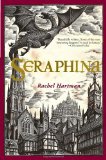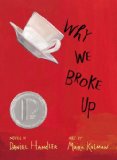 Why We Broke Up
Why We Broke Up
Novel by Daniel Handler
Art by Maira Kalman
Little Brown and Company, New York, 2011. 354 pages.
Starred Review
2012 Printz Honor
I read this book as part of my crazy plan to read award winners, even though I know it’s impossible, so I began by focusing on award winners where I’ve actually met the author. I started this book the evening after I got home from ALA Annual Conference, and stayed in bed late on Independence Day morning to finish it. The book is absorbing, quick reading, but very insightful.
Now I have to say to start off with: Call me old-fashioned, call me a prude, but I’m really glad that back when I was dating, we didn’t get naked with a guy on the 2nd date or so. We didn’t expect a kiss to mean we’re going to be felt up right away. And on top of that, I’m really happy that I didn’t have to plan when and where to lose my virginity. Or, wait a minute, I did plan a big party with all my family and friends (a wedding) and I lost my virginity in a truly extraordinary place (a honeymoon). Makes me feel sorry for kids today missing out on that.
But the story — the story is outstanding. Min explains what she’s doing right at the start:
Dear Ed,
In a sec you’ll hear a thunk. At your front door, the one nobody uses. It’ll rattle the hinges a bit when it lands, because it’s so weighty and important, a little jangle along with the thunk, and Joan will look up from whatever she’s cooking. She will look down in her saucepan, worried that if she goes to see what it is it’ll boil over. I can see her frown in the reflection of the bubbly sauce or whatnot. But she’ll go, she’ll go and see. You won’t, Ed. You wouldn’t. You’re upstairs probably, sweaty and alone. You should be taking a shower, but you’re heartbroken on the bed, I hope, so it’s your sister, Joan, who will open the door even though the thunk’s for you. You won’t even know or hear what’s being dumped at your door. You won’t even know why it happened.
It’s a beautiful day, sunny and whatnot. The sort of day when you think everything will be all right, etc. Not the right day for this, not for us, who went out when it rains, from October 5 until November 12. But it’s December now, and the sky is bright, and it’s clear to me. I’m telling you why we broke up, Ed. I’m writing it in this letter, the whole truth of why it happened. And the truth is that I goddamn loved you so much.
The thunk is the box, Ed. This is what I am leaving you. . . . Every last souvenir of the love we had, the prizes and the debris of this relationship, like the glitter in the gutter when the parade has passed, all the everything and whatnot kicked to the curb. I’m dumping the whole box back into your life, Ed, every item of you and me. I’m dumping this box on your porch, Ed, but it is you, Ed, who is getting dumped.
The thunk, I admit it, will make me smile. A rare thing lately. . . . The world is right again, is the smile. I loved you and now here’s back your stuff, out of my life like you belong, is the smile. I know you can’t see it, not you, Ed, but maybe if I tell you the whole plot you’ll understand it this once, because even now I want you to see it. I don’t love you anymore, of course I don’t, but still there’s something I can show you. You know I want to be a director, but you could never truly see the movies in my head and that, Ed, is why we broke up.
And so Min gives Ed a box full of stuff. The box and each item in it is pictured one by one, as Min tells the story of their relationship. It wasn’t a long relationship, lasting from October 5 to November 12. But Min has quite a number of souvenirs and you can see from the excerpt above how good she is at spinning words, showing you pictures.
And, I have to say this also, the book has a universal feel to it. On the back, it says, “Min and Ed’s story of Heartbreak may remind you of your own.” There are quotes from other writers about high school heartbreak.
I realized that though I had my heart broken not long ago, though I did get a divorce, I never did really break up. Instead, I got secretly betrayed and abandoned, while I was trying to cling by my fingernails to the marriage. Funny how reading someone else’s story, it’s easy to see what a good thing it was for Min to break up with Ed. Easy to imagine the satisfaction that Thunk must have brought. I got to thinking, what would I put in a box if I were to really act out a break up with a Thunk? What would I write in a letter? Now, mind you, there’s no box big enough for 24 years of marriage, and no book long enough. But Why We Broke Up did spark some deep thinking. I decided to celebrate Independence Day by putting away my wedding pictures. (Yes, I admit, I still had them up.) So not only was it a tremendously engaging story, it was therapeutic, too.
And that’s a win all the way around.
whywebrokeupproject.com
lb-teens.com
Buy from Amazon.com
Find this review on Sonderbooks at: www.sonderbooks.com/Teens/why_we_broke_up.html
Disclosure: I am an Amazon Affiliate, and will earn a small percentage if you order a book on Amazon after clicking through from my site.
Source: This review is based on a library book from the Fairfax County Public Library.
Disclaimer: I am a professional librarian, but I write the posts for my website and blogs entirely on my own time. The views expressed are solely my own, and in no way represent the official views of my employer or of any committee or group of which I am part.
Please use the comments if you’ve read the book and want to discuss spoilers!
 I’m doing a series on 2012 Sonderbooks Stand-out Authors who are returning to my list, in other words, my Favorite Authors. Four different authors have a total of 5 Stand-outs, and tonight I’ll be featuring Garth Nix.
I’m doing a series on 2012 Sonderbooks Stand-out Authors who are returning to my list, in other words, my Favorite Authors. Four different authors have a total of 5 Stand-outs, and tonight I’ll be featuring Garth Nix. Some books are so good, I can always remember the experience of reading them the first time and where I was when I read them. I remember reading Sabriel on Christmas vacation, when our family was driving from San Diego to Phoenix. It had been recommended to me by both my son and my husband, and I was blown away by how good it was.
Some books are so good, I can always remember the experience of reading them the first time and where I was when I read them. I remember reading Sabriel on Christmas vacation, when our family was driving from San Diego to Phoenix. It had been recommended to me by both my son and my husband, and I was blown away by how good it was. Of course, when I got home from the trip, I immediately had to read the next two books, Lirael and Abhorsen. In a way, I was lucky I’d taken my time getting around to reading the first one, since they were all published by the time I did, and I could devour them as fast as possible. (Rats! Just writing about them makes me want to read them again! I don’t have time to put my life on hold right now, since I’m buying a house. I will have to resist!)
Of course, when I got home from the trip, I immediately had to read the next two books, Lirael and Abhorsen. In a way, I was lucky I’d taken my time getting around to reading the first one, since they were all published by the time I did, and I could devour them as fast as possible. (Rats! Just writing about them makes me want to read them again! I don’t have time to put my life on hold right now, since I’m buying a house. I will have to resist!)
 I still hadn’t had enough of Sabriel’s World, and when a book of short stories and a novella came out in 2005, Across the Wall, it made my 2005 Sonderbooks Stand-outs, #6 in Young Adult Fantasy.
I still hadn’t had enough of Sabriel’s World, and when a book of short stories and a novella came out in 2005, Across the Wall, it made my 2005 Sonderbooks Stand-outs, #6 in Young Adult Fantasy.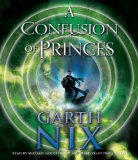 Finally, this year, Garth Nix is back on the list, this time with something totally different, a Science Fiction story rather than a Fantasy. I listened to A Confusion of Princes on audiobook, and I was completely absorbed, almost too absorbed for driving! On my 2012 Sonderbooks Stand-outs, it was #8 in Young Adult Fiction. (I didn’t divide the genres this year.)
Finally, this year, Garth Nix is back on the list, this time with something totally different, a Science Fiction story rather than a Fantasy. I listened to A Confusion of Princes on audiobook, and I was completely absorbed, almost too absorbed for driving! On my 2012 Sonderbooks Stand-outs, it was #8 in Young Adult Fiction. (I didn’t divide the genres this year.)




